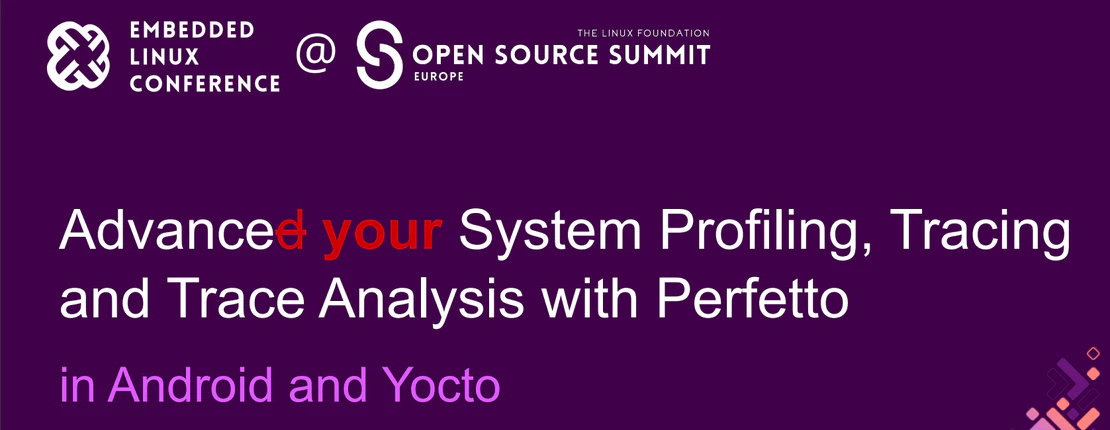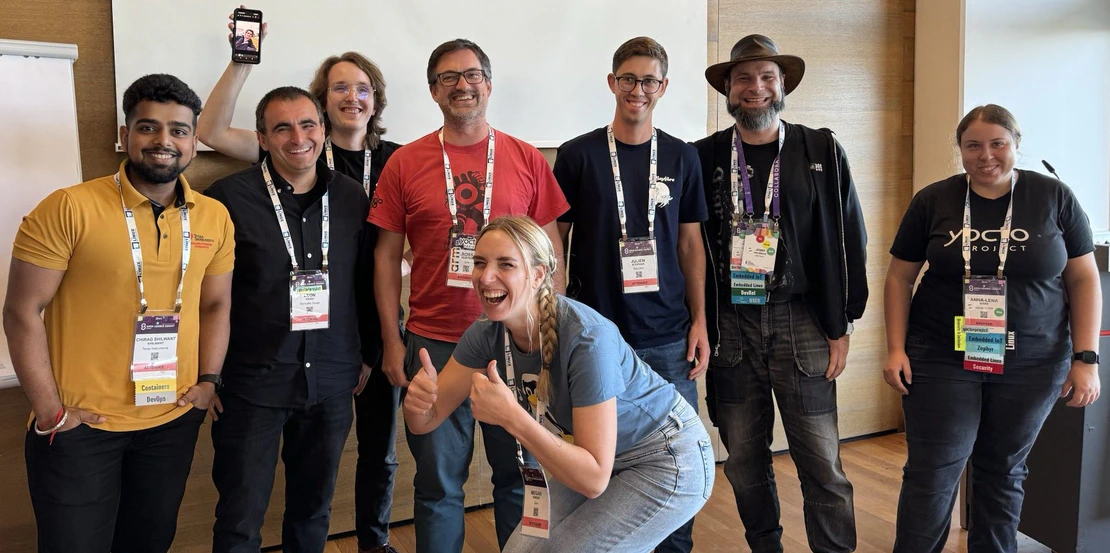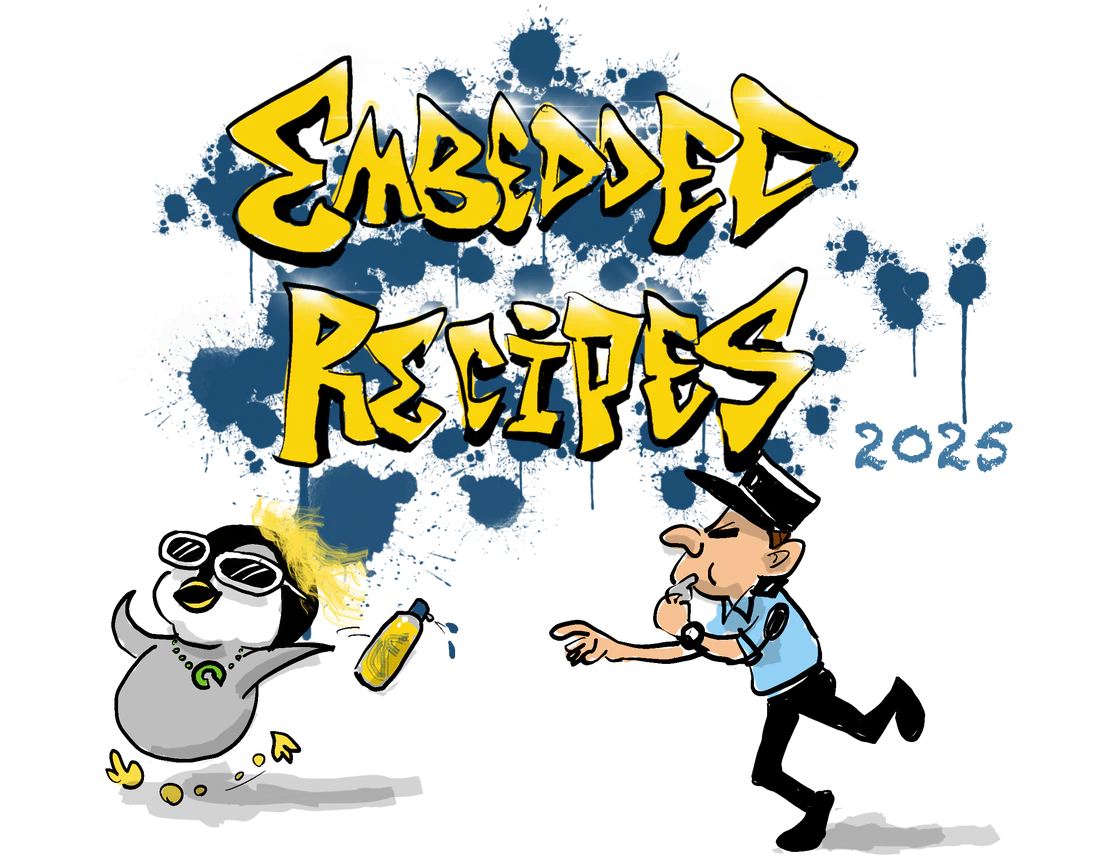
Advanced System Profiling, Tracing and Trace Analysis with Perfetto in Android and Yocto
- Anna-Lena Marx
- Embedded , Conferences
- October 8, 2024
Together with my colleague Stefan Lengfeld.
Tracing is a capable mechanism for deep system analysis and profiling with a minimal overhead. By recording defined system events, in Linux but also Android, tracing can be used to analyze concurrency or latency issues, for example. Android’s systrace tool made it easy to analyze and correlate traces and events due to a graphical UI, in order to help developers identify performance bottlenecks. The successor to this advanced and convenient tool is called Perfetto. It’s available for pure Linux too, and part of Yocto (meta-oe) since Langdale now. In the talk, we’ll have a look into
- using Perfetto with Android and Yocto,
- adding trace events to your applications,
- recording traces and
- analyzing system and application traces with the graphical GUI.
This will allow you to take full advantage of the Perfetto trace viewer UI for analyzing memory usage, CPU scheduling, latency and more.
Presented at
- Open Source Summit Europe, Vienna, Austria, 2024
Related Posts

Building Embedded Systems with AOSP
- Anna-Lena Marx
- June 30, 2023
- Embedded , Conferences
In our community, building embedded systems based on Linux, e.g. with Yocto or buildroot, is standard and well known. Considering Android, respectively the AOSP as a base system feels strange at the beginning as it is a huge ecosystem that implies high system requirements. Of course, embedded Android is not a solution for each issue. Nevertheless, the AOSP provides a sophisticated base platform which is packed with a
- modern UI stack
- robust media and camera implementation
- modern AI runtime
- well known abstraction between system and app development
- energy optimization
and lots of other helpful infrastructure.
This makes AOSP an interesting approach for building more complex embedded systems.

Yocto on the Edge - Unusual challenges when building not so embedded systems
- Anna-Lena Marx
- October 8, 2024
- Embedded , Conferences
Building embedded systems with Yocto on ARM platforms is a common practice, but when the products move further to the edge and become less “embedded,” new challenges arise. In this session, we will explore the requirements and challenges faced when developing Yocto-based systems for edge computing based on Intel.
We will dive into topics such as provisioning x86-based platforms, securely managing Linux user logins on a read-only root file system with enforced password changes, and implementing A/B updates together with secure boot. Real-world project requirements will be used as a guide to discuss practical solutions and best practices for addressing these challenges.
Read Post
Building Trust - Use Cases and Implementation of TPM 2.0 in Embedded Linux Systems
- Anna-Lena Marx
- May 16, 2025
- Embedded , Conferences
Artwork by: Sparkelle (Yan) — Licensed under Creative Commons BY-SA 4.0
As embedded systems become increasingly interconnected, the demand for robust platform security and integrity has surged. Trusted Platform Modules (TPM), currently in version 2.0, are becoming increasingly beneficial for enhancing security in embedded systems. TPMs provide hardware-backed mechanisms for critical functions such as random number generation, cryptographic key generation, key binding and data sealing.
This presentation will explore the capabilities of TPM 2.0, focusing on several practical use cases, including:
Read Post